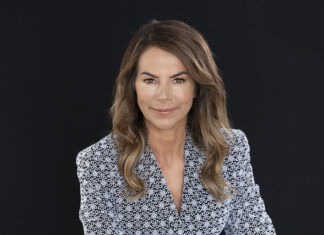ISOBEL COLEMAN
Noosa’s battle to save the koala took a turn for the worse this week, with rumours confirmed that those unable to breed are being euthanized.
Coast koala campaigner Carolyn Beaton told Noosa Today that most infertile koalas are destroyed, even if they could be returned to good health and released back into the wild. “Unfortunately this is true – it’s a long-standing policy of the Department of Environment & Heritage Protection. It has been the case as long as I have been involved in koala conservation, 2007, and maybe a lot longer,” she said. “This is one of two koala policies that we [Queensland Koala Crusaders Inc] feel is very wrong and we are lobbying the State Government at every turn. The other policy is in relation to the translocation of koalas. “But there is a sense it is all falling on deaf ears, heightening despair amongst koala rescuers and carers.” Ms Beaton said a handful of infertile koalas survived if treatment facilities, such as Australia Zoo Wildlife Hospital, applied to the Department for a koala to be put on the Species Management Program. “This means their details are circulated amongst zoos and wildlife sanctuaries in Queensland and they can apply to ‘adopt’ them, their value being deemed to be for educational purposes,” Ms Beaton said. “Very few koalas are given this opportunity, however, and the great majority of infertile koalas are therefore sadly euthanized – thousands in my time. “It is difficult to understand the rationale of the Government, particularly when recent research suggests that the prevalence of infertility in female koalas in South East Queensland may be as high as 60 to 70 per cent. It is a frightening statistic.” Ms Beaton said wildlife carers make a judgement call based on the initial examination. “If, for example, a female koala presents with advanced reproductive disease through ultrasound examination, rendering her infertile, she will be euthanized – she won’t be kept in care only to be euthanized later. “If it were permissible under Queensland policy, the alternative in this case would be to perform a hysterectomy – if the koala was otherwise healthy. We – Queensland Koala Crusaders, in particular – feel this is the common sense, humane approach to managing a vulnerable species that has a value beyond simply reproducing. “I think the current policy stems from the idea that infertile koalas, if returned to the wild, would be taking up space and using resources that should be reserved for koalas that are reproductively viable. I think it is a non-argument when koala numbers in SEQ are historically low, as they are right now.” A Department of Environment and Heritage Protection spokesperson confirmed that fact. “A koala is euthanized, rather than returned to the wild, when its ability to reproduce is lost due to an injury, disease or surgical procedure. This policy, which has been in place since 2006, helps ensure koalas that cannot play a role in recovering or sustaining the overall population do not compete with fertile koalas for habitat, food, or a mate. “The policy is consistent with the Nature Conservation (Koala) Conservation Plan 2006 and Management Program 2006–2016. “Any changes to the current policy would require amendments to state policy and possibly any associated legislation. EHP is currently investigating whether a change to the current policy is warranted and what this would entail.”






